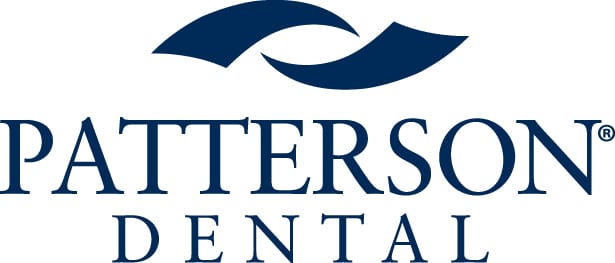On Dental Fuel episode 6, Dr. Emma Guzman speaks FACTS, sharing a financial mistake she has made and a reminder to know your worth!
Very insightful and a lesson that we can all learn from!
Dr. Emma Guzman is a General and Cosmetic Dentist, practicing in New York City.
She completed her Doctor of Dental Surgery degree at the University at Buffalo School of Dental Medicine and was a general practice resident at Bronx Care in the Bronx, New York.
Dr. Guzman currently practices in Brooklyn and her main focus is changing her clients’ lives by improving their smiles and ultimately their health.
Dr. Guzman-Vizcarrondo is a member of the American Dental Association, National Dental Association, Academy of General Dentistry, and Delta Sigma Delta Dental Fraternity.
She is a member of the Second District Dental Society New Dentist Committee. She is dedicated to mentoring, volunteerism, and service. Dr. Guzman-Vizcarrondo is originally from Brooklyn, New York, and her parents immigrated from Livingston, Guatemala.
She has five siblings and several nieces and nephews. She enjoys dancing, cooking, traveling, and spending time with family and friends.
🎙️ Listen to Dental Fuel Episode 6 on Apple Podcasts
Dental Fuel Episode 6: Financial Mistake Transcript
In Dental Fuel episode 6, Dr. Guzman speaks about a financial mistake.
Dr. Tanya Sue Maestas
Emma, pivoting over to a business or financial mistake, what is a business or financial mistake that you have made in your career? So far?
Dr. Guzman-Vizcarrondo
I would say that a big, big, big, big financial mistake is not knowing my worth.
Dr. Tanya Sue Maestas
Oh, that’s a good one.
Dr. Guzman-Vizcarrondo
Not knowing my worth as a young dentist, a new dentist, a woman of color, right and essentially in the beginning of my career.
Now, aside from like, the scary practices that you go in, and you’re like, I definitely can’t work here, right? But just taking what they offered, right?
Like, now, okay, this is the standard, the standard when we graduated, you know, at least in New York City, okay, $500 a day. If you were offering me $500 a day, okay. I didn’t negotiate anything else I didn’t.
I didn’t ask to be W-2 because that’s another thing too, right?
All these little things like they’re telling you in senior year of dental school and residency, that you really don’t understand because you’re not in it, when they’re just like, don’t let them make you do 1099 It’s supposed to be W2 and you’re just like, I don’t even know what you’re talking about, right?
And then when you go and then like okay, here’s your 1099, oh, like later so I feel like I’ve heard about this before, but I don’t remember why I’m not supposed to do this.
Oh, $500 a day, okay, and 1099 right? And, and that’s kind of how it was a lot of the places in the city and, you know, I like I’ve been practicing for six years. It wasn’t until I was at Tend where I was W2.
So it was like I’ve always been 1099. Where essentially am I really 1090? Am I carrying my equipment to that office? No. But it was essentially accepting whatever you were offering me, right?
Having conversations in the beginning when they’re saying, okay, we’re going to do $500 a day and then you know, in three months, we’ll visit that he paid off reduction. Cool, right, then it’s nine months later, and we’ve never had that conversation and then Im also not bringing it up, right?
So things like that where you are losing out on money, right?
I’m looking at my production and I’m like, I produce way more than $500 a day. But who am I to say anything to my boss? I just graduated from school.
So for me, and it’s just like and I never thought about it until I read the questions and I was just like, what would be an as not being a business owner, I’m like what would be a financial mistake?
And I’m like, not knowing my worth.
Because there’s been too many conversations where I’ve had with my colleagues, you know, graduated the same year as me.
Like, what percentage are you getting paid? Oh, 30, is that not normal? Is that not what I’m supposed to be getting?
You know, the same year as me, asking for exactly what they want, you know, telling their bosses exactly what they want, getting insurance, having all these things but I’m just here like, thank you for my paycheck, right?
Like I’m not working for it.
Dr. Tanya Sue Maestas
Yeah, I resonate so much with that. So Im at an FQHC and I had a commitment that I had to do with public health and I needed a job, I mean, I applied everywhere I was having a really hard time getting a job and so pretty much the first one that bit, and thank God it’s been a great place to be, but the first one that they were like here, this is what we’re offering you you in or out?
I was like I’m in.
Instead of taking a step back and being like, hey, let’s negotiate a little bit. Is there any wiggle room I bring this to the table, XYZ?
I think that now if I were to go somewhere else, the conversation would be different, I would hope. But I completely resonate with what you’re what you’re sharing with us today.
Dr. Guzman-Vizcarrondo
Yeah. Yeah, it’s still hard now, right? Like I’m playing back like, okay, like, this is how much I’m going to ask for. And then you get there and you’re just like, oh, what are you offering?
Like, I don’t know what it is. And it’s just like I’m not used to doing that right? It just wasn’t a thing like people never spoke about money in my household right?
Like it’s like kind of weird, why are we talking about money? I don’t know how much people made.
So it wasn’t until I was older that I had my other colleagues that are just like, oh yeah, how much you’re getting paid?
And I’m like, we’re, we’re talking about money?
Dr. Tanya Sue Maestas
Yeah, that’s still kind of weird for me, but yes!
Dr. Guzman-Vizcarrondo
Right, we’re allowed to do that!
Dr. Tanya Sue Maestas
It should be talked about!
Dr. Guzman-Vizcarrondo
And it wasn’t until my current position that I told my girlfriend that I was applying and she’s like, ask for this much.
And I was like that’s so much. I was like it’s so much right?
So, and then me playing myself, like I asked for a little bit less than what she said because I felt like what she said was too much.
And they’re just like, okay!
And I was like wait, no, actually this! And they’re like no. I was like that was so easy. I should have asked for more right?
Because now when you’re trying to negotiate they’re like you already said your number and you said your number.
Dr. Tanya Sue Maestas
Yeah, you showed your cards. You showed your cards, and they were too low.
Dr. Guzman-Vizcarrondo
Right! And even at one of my other jobs that I initially applied to and this was maybe I was about a year out. He was just like, okay, what would you like to get paid?
And I was just staring at him. I don’t know.
Well, what do you usually get paid your an associate?
Like I don’t even know how to respond to that. And that was because I didn’t want to say a number that would sound disrespectful to my potential boss or sound like “whose this new doctor coming in thinking she could ask me for whatever she wants?”.
But that’s totally in my head because people do it every day, right?
So I would say that’s a huge financial mistake because I know I lost out on money those first two, three years I was practicing.
Dr. Tanya Sue Maestas
Oh, absolutely. I completely agree with that.
So for our listeners:
- Know Your Worth
- Ask
You know the worst they can say is no, you likely won’t offend them.
But it will probably lead to a dialogue and a conversation and perhaps get some feedback on better ways to ask in the future.
Dr. Guzman-Vizcarrondo
Absolutely.
Dr. Tanya Sue Maestas
Join us on our next episode where Dr. Guzman talks about mistakes and challenges when leading a team.
Connect:


